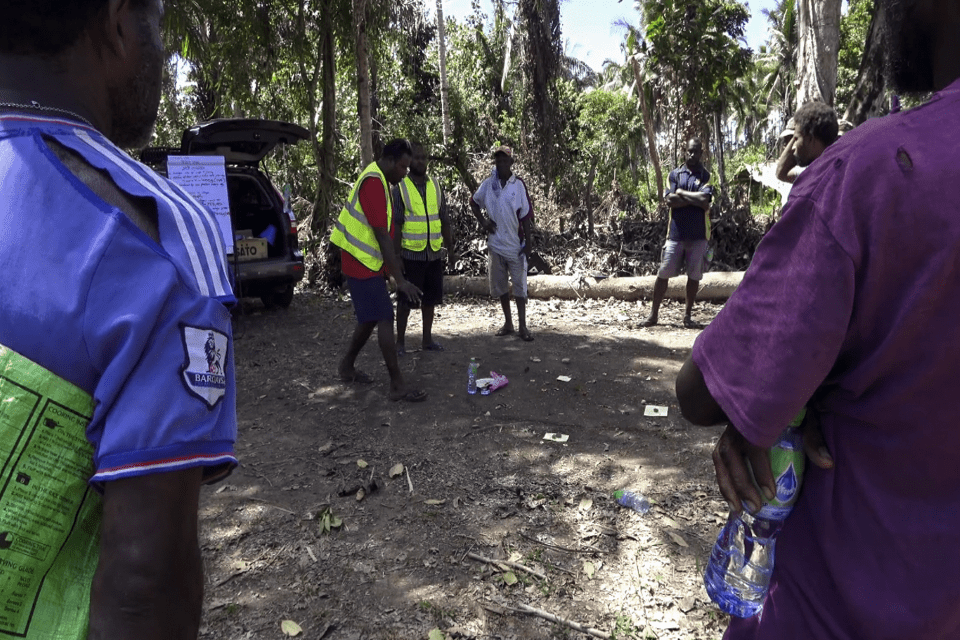BY MYTNE LIVETT
OFFICIALS of the Community Led Total Sanitation program under the Guadalcanal Council of Women have raised a series of health trigger awareness to communities residing in five wards on Central Guadalcanal that are still practicing open defecation (open toilet).
The Community Led Total Sanitation (CLTS) Program Manager, Nathaniel Salini who led the team to Central Guadalcanal’s Ward of Malango, Vulolo, Ghaobata, Paripao, and Tasiboko told Environment Media that open defecation is one of the leading causes of childhood stunting, a common disease affecting a majority of children in rural communities in the Solomon Islands.
The program manager said that childhood stunting can cause slow physical growth and brain development in children under the age of five due to poor hygiene practices.
According to Nathaniel, in his own words: “A person release shit (poop) two time’s day, and so the average weight of human waste excreted by a person per day is 500 grams. Which means a person releases a kilogram of shit every day.”

Without proper toilet or sanitation, according to Nathaniel Salini, it’s like a community with 250 people multiplied by 1000 grams poops, it gives the result of 250kg of poops per day, which is equivalent to 1,750kg of poops per week in a community.
The one-day awareness at the Areatakiki village, Central Guadalcanal includes a live demonstration of fresh human poop next to an opened Solomon Blue can and a bottle of drinking water, to show the rural populace how flies can spread infections in a community that doesn’t have proper toilets.
The Project is funded by United Nations Children’s Fund (UNICEF) and implemented by the Guadalcanal Province Council of Women (GPCW).
Solomon Islands has a massive problem of open defecation and the majority of people living in rural communities are still practicing open defecation in the country.

“Children – already vulnerable and marginalized – pay the highest price in respect of their survival and development.
“This well-established traditional behavior is deeply ingrained through practice from early childhood and deeply rooted cultural and social norms that have established open defecation as an acceptable practice,” according to WHO/UNICEF reports.





